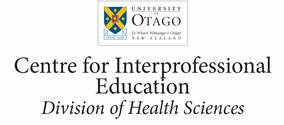|
|
|
We're delighted to announce the below Keynote Speakers.
Emeritus Professor John H.V. Gilbert, C.M., Ph.D., LLD., FCAHS
University of British Columbia and Dalhousie University
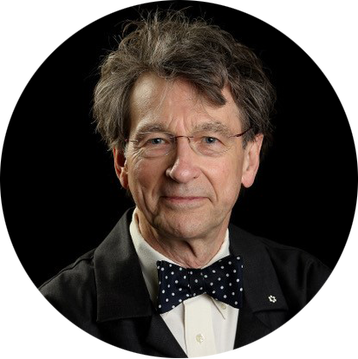
Dr. John Gilbert has been a seminal leader in the education of health professionals in British Columbia, Canada and internationally. In the early part of his career he pioneered linguistics and psychology as the basis of practice for speech-language pathologists and audiologists. In the latter part of his career it was his vision and leadership that led to the concept of interprofessional education being developed as a central tenet of team-based collaborative patient-centred practice and care. These concepts are now part of university, college, and institute health sciences training in many places across Canada.
Dr. John Gilbert is founding Principal & Professor Emeritus, College of Health Disciplines, University of British Columbia where he was also founding Director of the School of Audiology and Speech Sciences, and Director of the School of Rehabilitation Sciences. He has received many honours and awards. He has served on many committees and Boards, locally, nationally and internationally, including Health Canada’s Health Education Policy Taskforce; the Boards of the Michener Institute for Applied Health Sciences in Toronto; the British Columbia Health Education Foundation; the School of Health Sciences Advisory Committee of the Justice Institute of BC, British Columbia’s Patient Care Quality Review Board, and is currently appointed by the Minister of Health to the Patient Safety and Quality Board of British Columbia. He is a member of the Editorial Board of the Journal of Interprofessional Care, and Co-Editor of the open access Journal of Research in Interprofessional Education. He is currently a Senior Scholar, WHO Collaborating Centre on Health Workforce Planning and Research, Dalhousie University; Adjunct Professor, Faculty of Graduate Studies, Dalhousie University. He holds the DR. TMA Pai Endowment Chair in Interprofessional Education & Practice, Manipal University, India, and is an Adjunct Professor, University of Technology, Sydney. He is the Founding Chair, Canadian Interprofessional Health Collaborative.
He has been an Adjunct Professor, University of Pittsburgh, and at the National University of Malaysia; as an advisor to Hospitals Without Borders; was Co-Chair of the WHO Study Group on Interprofessional Education and Collaborative Practice, and currently serves on the Advisory Committee on Social Determinants of Health at the WHO.
He was elected a Fellow, Canadian Academy of Health Sciences, in 2008. He was awarded the Queen’s Diamond Jubilee Medal in April 2012, and in October 2013 received the Outstanding Lifetime Contribution to International Allied Health Development Award from the International Chief Health Professions Officers Organization.
Dr. Gilbert was appointed a Member of the Order of Canada, in July 2011 for his leadership in the development of interprofessional education as a central tenet in team-based collaborative patient-centered practice and care, nationally and globally. He received the degree Doctor of Laws, Honoris Causa from Dalhousie University in June 2016.
John's attendance at the conference has been helped by kind assistance from the University of Otago - IPE Centre, Division of Health Sciences.
Dr. John Gilbert is founding Principal & Professor Emeritus, College of Health Disciplines, University of British Columbia where he was also founding Director of the School of Audiology and Speech Sciences, and Director of the School of Rehabilitation Sciences. He has received many honours and awards. He has served on many committees and Boards, locally, nationally and internationally, including Health Canada’s Health Education Policy Taskforce; the Boards of the Michener Institute for Applied Health Sciences in Toronto; the British Columbia Health Education Foundation; the School of Health Sciences Advisory Committee of the Justice Institute of BC, British Columbia’s Patient Care Quality Review Board, and is currently appointed by the Minister of Health to the Patient Safety and Quality Board of British Columbia. He is a member of the Editorial Board of the Journal of Interprofessional Care, and Co-Editor of the open access Journal of Research in Interprofessional Education. He is currently a Senior Scholar, WHO Collaborating Centre on Health Workforce Planning and Research, Dalhousie University; Adjunct Professor, Faculty of Graduate Studies, Dalhousie University. He holds the DR. TMA Pai Endowment Chair in Interprofessional Education & Practice, Manipal University, India, and is an Adjunct Professor, University of Technology, Sydney. He is the Founding Chair, Canadian Interprofessional Health Collaborative.
He has been an Adjunct Professor, University of Pittsburgh, and at the National University of Malaysia; as an advisor to Hospitals Without Borders; was Co-Chair of the WHO Study Group on Interprofessional Education and Collaborative Practice, and currently serves on the Advisory Committee on Social Determinants of Health at the WHO.
He was elected a Fellow, Canadian Academy of Health Sciences, in 2008. He was awarded the Queen’s Diamond Jubilee Medal in April 2012, and in October 2013 received the Outstanding Lifetime Contribution to International Allied Health Development Award from the International Chief Health Professions Officers Organization.
Dr. Gilbert was appointed a Member of the Order of Canada, in July 2011 for his leadership in the development of interprofessional education as a central tenet in team-based collaborative patient-centered practice and care, nationally and globally. He received the degree Doctor of Laws, Honoris Causa from Dalhousie University in June 2016.
John's attendance at the conference has been helped by kind assistance from the University of Otago - IPE Centre, Division of Health Sciences.
John's Keynote Address
Leadership: Interprofessional transformation – are we making a difference? Conjectures & Refutations
Leadership: Interprofessional transformation – are we making a difference? Conjectures & Refutations
Dr Daniel R. Kambey
Indonesian Young Health Professionals' Society
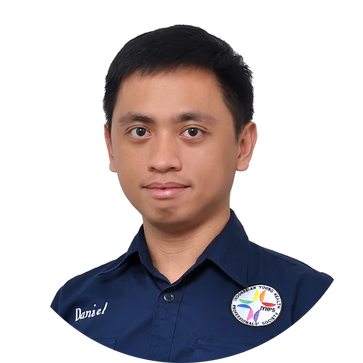
Daniel is the current chairman of the Indonesian Young Health Professionals’ Society (IYHPS), an organization consists of multiple health professions working to improve health outcomes and education system through promoting interprofessional education and collaborative practice. This organization is a platform for health professionals in Indonesia under 35 year of age to do collaborative projects in healthcare, and facilitate the development of local champions of interprofessional education and practice from around the country.
He graduated from medical school at Universitas Pelita Harapan in Indonesia and later come back as a faculty. His last academic position at Faculty of Medicine Universitas Pelita Harapan is the Assistant Dean for Bachelor Program. Later he further his study in medical education at University of Dundee in Scotland. He also took part in the IPE training course held by the WHO Collaborating Centre for Research and Training on Interprofessional Education, Gunma University, Japan.
After coming back to Indonesia, he is involved in numerous local and national scale projects in health professions education in Indonesia. To name a few, developing interprofessional module for Nusantara Sehat pre-departure training, involved in writing Guidelines for Public University Teaching Hospitals, as expert panel member in Special Guidance Program for Re-takers of National Competency Exam, and the director of the 1st Asia Pacific Interprofessional Education and Collaboration (APIPEC) Conference. He actively present his works in international and national conferences of health profession education. He is also recognized as one of the Associate Fellows of Association for Medical Education in Europe (AMEE).
His ongoing long term project is establishing the National Centre for Advancement of Interprofessional Education and Collaborative Practice in Indonesia by 2018, as well as the Asia Pacific Interprofessional Education and Collaboration (APIPEC) Network in the effort to do regional multi-centre research in interprofessional education and practice.
He graduated from medical school at Universitas Pelita Harapan in Indonesia and later come back as a faculty. His last academic position at Faculty of Medicine Universitas Pelita Harapan is the Assistant Dean for Bachelor Program. Later he further his study in medical education at University of Dundee in Scotland. He also took part in the IPE training course held by the WHO Collaborating Centre for Research and Training on Interprofessional Education, Gunma University, Japan.
After coming back to Indonesia, he is involved in numerous local and national scale projects in health professions education in Indonesia. To name a few, developing interprofessional module for Nusantara Sehat pre-departure training, involved in writing Guidelines for Public University Teaching Hospitals, as expert panel member in Special Guidance Program for Re-takers of National Competency Exam, and the director of the 1st Asia Pacific Interprofessional Education and Collaboration (APIPEC) Conference. He actively present his works in international and national conferences of health profession education. He is also recognized as one of the Associate Fellows of Association for Medical Education in Europe (AMEE).
His ongoing long term project is establishing the National Centre for Advancement of Interprofessional Education and Collaborative Practice in Indonesia by 2018, as well as the Asia Pacific Interprofessional Education and Collaboration (APIPEC) Network in the effort to do regional multi-centre research in interprofessional education and practice.
Daniel's Keynote Address
Cultural difference: Friend or a foe?
Cultural difference: Friend or a foe?
Associate Professor Monica Moran
Rural Health, Western Australian Centre for Rural Health
The University of Western Australia
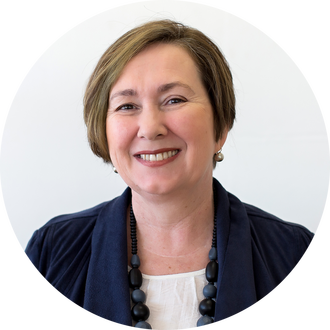
An academic of 18 years and an experienced health professional in the field of occupational therapy, Monica completed her undergraduate studies in Dublin but she has spent the bulk of her clinical and academic career in Australia, firstly working at the University of Queensland for 12 years where she coordinated a Master of Occupational Therapy Program. She followed this with a move to Central Queensland University for five years where she led the development of a new occupational therapy degree program in Central Queensland, a large regional location with a chronic shortage of health professionals. This role increased her awareness of the need for innovative learning models to support the provision of team based health services in rural and remote locations that record significantly poorer health outcomes than urban areas in Australia.
Her most recent challenge is a move to the remote Pilbara area in Northern Western Australia, one of the most isolated and under serviced locations in Australia. In her current role she is working directly to support the development of rural health workforce through the creation of authentic student learning experiences, the development of support strategies for rural health teams, and research and evaluation of integrated team programs for some of Australia’s most vulnerable peoples.
She holds adjunct professorial appointments at Queensland University of Technology, Central Queensland University and the University of Derby in the United Kingdom.
In 2010 she had the privilege of contributing to the WHO Framework for Interprofessional Education and Collaborative Practice (WHO, 2010). Since that time she have participated in interprofessional projects and research activities at local, national and international levels including longitudinal evaluation studies. She is currently a member of a nationally funded project team tasked with developing a national governance structure to secure the development and sustainability of interprofessional education and collaborative practice across Australia.
As a founding member of the Australasian Interprofessional Practice and Education Network she was part of the organizing committee for the international conference All Together Better Health 5, the first international IPE conference to be held in the southern hemisphere. Over the past 10 years she has been a director of the HealthFusion Team Challenge in Australia, growing the project from a local event involving one university to an international event involving students and staff from many universities across Australia and internationally. She have received multiple University Teaching awards and a National Teaching Award in recognition of this work.
Currently Monica is President of the Australia and New Zealand Association for Health Professional Educators, a peak organization providing mentorship and professional development to health professional educators in academic or clinical settings.
Her most recent challenge is a move to the remote Pilbara area in Northern Western Australia, one of the most isolated and under serviced locations in Australia. In her current role she is working directly to support the development of rural health workforce through the creation of authentic student learning experiences, the development of support strategies for rural health teams, and research and evaluation of integrated team programs for some of Australia’s most vulnerable peoples.
She holds adjunct professorial appointments at Queensland University of Technology, Central Queensland University and the University of Derby in the United Kingdom.
In 2010 she had the privilege of contributing to the WHO Framework for Interprofessional Education and Collaborative Practice (WHO, 2010). Since that time she have participated in interprofessional projects and research activities at local, national and international levels including longitudinal evaluation studies. She is currently a member of a nationally funded project team tasked with developing a national governance structure to secure the development and sustainability of interprofessional education and collaborative practice across Australia.
As a founding member of the Australasian Interprofessional Practice and Education Network she was part of the organizing committee for the international conference All Together Better Health 5, the first international IPE conference to be held in the southern hemisphere. Over the past 10 years she has been a director of the HealthFusion Team Challenge in Australia, growing the project from a local event involving one university to an international event involving students and staff from many universities across Australia and internationally. She have received multiple University Teaching awards and a National Teaching Award in recognition of this work.
Currently Monica is President of the Australia and New Zealand Association for Health Professional Educators, a peak organization providing mentorship and professional development to health professional educators in academic or clinical settings.
Monica's Keynote Address
What do Clients really want?
What do Clients really want?
Professor Denise Wilson
Māori Health, Associate Dean Māori Advancement and Co-Director of Taupua Waiora Centre for Māori Health Research
Auckland University of Technology
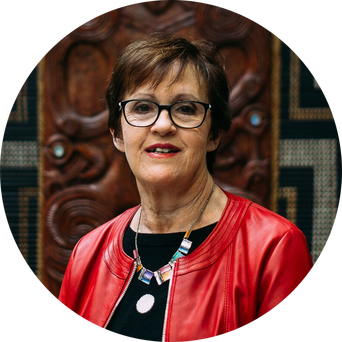
Dr Denise Wilson is the Professor in Māori Health, the Faculty of Health and Environmental Sciences Associate Dean Māori Advancement and Co-Director of Taupua Waiora Centre for Māori Health Research at Auckland University of Technology (AUT). Denise has a background in health as a registered nurse working clinically in intensive care/coronary care in Tauranga, as a practice nurse for a general practitioner in an area of high need in Rotorua, and as a Nurse Consultant for the medical and diagnostic services at Rotorua and Taupo Hospitals. She moved to education where she has taught on undergraduate nursing programmes at Waiariki Polytechnic and Massey University in Wellington, prior to moving to postgraduate nursing education at Massey University in Albany. She held the position as Education Advisor for the Nursing Council for two years, which gave her insights into nursing and health at a national level. In 2010, Denise joined AUT as the Associate Professor Māori Health and took up the position as Director of Taupua Waiora Centre for Māori Health Research.
Emerging from her clinical and education was her interests in improving Māori health access to health services and the quality of care they receive, responding better to those living with family violence, and culturally responsive health practitioner practice. Her research focuses on Māori and indigenous health, family violence, cultural responsiveness, and workforce development.
Denise has also been involved in the development of the Ministry of Health’s Violence Intervention Programme, and is currently the:
• Ministry of Social Development’s Chair of the Family Violence Prevention Investment Advisory Board;
• Deputy Chair of the Health Quality and Safety Commission’s Family Violence Death Review Committee;
• Chair of the Mortality Review Committee’s Māori Caucus; and
• A member of the Health Quality & Safety Commission’s Roopū Māori.
Denise co-authored The People’s Report and The People’s Blueprint for the Glenn Inquiry into Child Abuse and Domestic Violence. She has been a board member of the Nursing Network for Violence Against Women International. Denise is currently is a Visiting Professor at Oxford Brookes University in the UK and a member of Florida State University’s Advisory Council for the Centre for Indigenous Nursing Research for Health Equity among other international collaborations. Denise is the recipient of a prestigious Royal Society of New Zealand’s Marsden Fund grant for research into how Māori women keep safe in unsafe relationships.
Emerging from her clinical and education was her interests in improving Māori health access to health services and the quality of care they receive, responding better to those living with family violence, and culturally responsive health practitioner practice. Her research focuses on Māori and indigenous health, family violence, cultural responsiveness, and workforce development.
Denise has also been involved in the development of the Ministry of Health’s Violence Intervention Programme, and is currently the:
• Ministry of Social Development’s Chair of the Family Violence Prevention Investment Advisory Board;
• Deputy Chair of the Health Quality and Safety Commission’s Family Violence Death Review Committee;
• Chair of the Mortality Review Committee’s Māori Caucus; and
• A member of the Health Quality & Safety Commission’s Roopū Māori.
Denise co-authored The People’s Report and The People’s Blueprint for the Glenn Inquiry into Child Abuse and Domestic Violence. She has been a board member of the Nursing Network for Violence Against Women International. Denise is currently is a Visiting Professor at Oxford Brookes University in the UK and a member of Florida State University’s Advisory Council for the Centre for Indigenous Nursing Research for Health Equity among other international collaborations. Denise is the recipient of a prestigious Royal Society of New Zealand’s Marsden Fund grant for research into how Māori women keep safe in unsafe relationships.
Denise's Keynote Address
Culturally-responsive interprofessional education and practice beyond mere rhetoric
Culturally-responsive interprofessional education and practice beyond mere rhetoric
Whakatauki / Māori Proverb
|
Me ka moemoea au, ko au anake
If I dream, only I achieve |
Me ka moemoea e tatau, ka taia e tatau
If we dream together, we all achieve |
Page photo by Sara Orme

